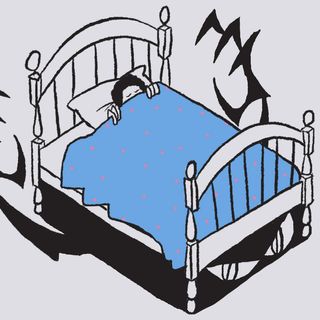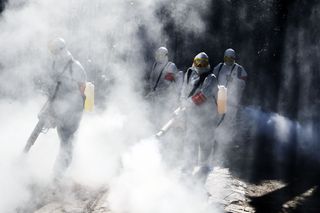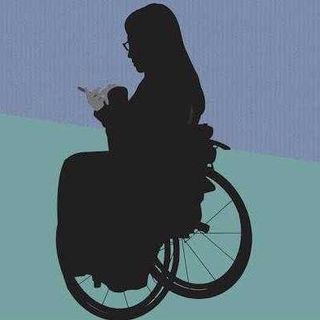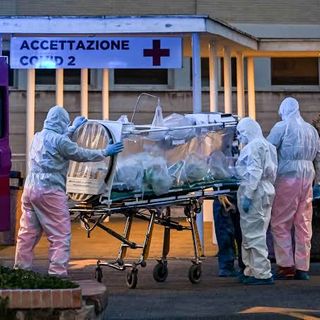
Is Spraying Disinfectant in Public Spaces an Effective Way to Stop the Spread of Covid19?
“Nobody goes around licking sidewalks or trees.”

On Sunday, the Health Ministry issued a set of guidelines to disinfect public, common places such as entrance lobbies, corridors, and staircases. It added that all high-contact surfaces such as elevator buttons, handrails/handles are to be disinfected containing 1% sodium hypochlorite (commonly referred to as bleach) or phenolic disinfectants.
The guidelines don’t mention disinfecting streets or roads, maintaining that the outdoors are not risky due to their “air currents and exposure to sunlight.” However, many Indian cities, have already gone on a drive to disinfect the streets, or have plans to do so. Take, for instance, in Mumbai, the Mumbai Fire Brigade stated that it will undertake a round of spraying disinfectants across the city. “The fire brigade presently has 11,080 litres of sodium hypochlorite (bleach) that will be mixed with water to make the 5,54,000 litres of disinfectant,” reported Hindustan Times. Bengaluru too has resorted to disinfecting its streets with the same mixture.
It’s true that both sodium hypochlorite and phenolic mixtures feature on the list recently released by the Environmental Protection Agency as disinfectants that are effective in fighting coronaviruses.
But is spraying disinfectant in public spaces an effective way to stop the spread of Covid19?
Per the American Association for the Advancement of Science’s journal, Science, many of these disinfectants contain either ethyl alcohol, isopropyl alcohol, or a bit of bleach as their main ingredient that can break proteins — the basic units that keep cells and viruses from functioning. And alcohol is known to break the outer coating that covers many viruses, including the novel coronavirus, that prevents them from latching onto and intruding new cells.
Past studies have shown that common household disinfectants, including soap or a diluted bleach solution, can deactivate coronaviruses on indoor surfaces, Science reported.
But in the outdoors, Science added, a diluted solution of sodium hypochlorite, may not be effective in killing coronaviruses. “Bleach itself breaks down under ultraviolet (UV) light. And coronavirus exposure from outdoor surfaces may be limited already. Nobody goes around licking sidewalks or trees,” Juan Leon, an environmental health scientist at Emory University told Science.
Related on The Swaddle:
How Likely Are You to Get Coronavirus? Very.
And it is risky for people carrying out the job of disinfecting public places. “Bleach is highly irritating to mucous membranes,” said Julia Silva Sobolik, a student in Leon’s lab. This means that workers are at risk of respiratory ailments. A study found nurses who regularly used disinfectants to clean surfaces were at higher risk of chronic obstructive pulmonary disease.
A researcher with China’s Center for Disease Control and Prevention, Zhang Liubo, also warned the public that, “Outdoor surfaces, such as roads, squares, lawns, should not be sprayed with disinfectants repeatedly. … Spraying disinfectants over a large area and repeatedly may cause environmental pollution and should be avoided,” Science reported.
Last week, Israel’s Environmental Protection Ministry warned of the same problem.
“The ministry also said it hasn’t been proven that disinfecting public spaces such as streets and parks is effective in preventing the spread of the coronavirus,” Times of Israel reported.
Public-health experts think mass disinfection efforts will have mixed results. It makes sense to disinfect hospitals, schools, religious sites, but spraying disinfectants in the air and on the streets make little sense because coronavirus travels person to person through saliva and mucous droplets, not through the air. “I would rather see better efforts to make sure people are disinfecting emergency rooms and high-touch surfaces in hospitals and schools more than I would want to see bleach being sprayed on streets,” said Saskia Popescu, an infection-prevention epidemiologist to Business Insider. “Honestly think about how often do your hands or mouth come into contact with a street,” she added.
Under most circumstances, we can’t control what’s on public surfaces. Even if we happen to touch them, the best is to focus on how to minimize ways in which we might contract the virus — washing hands. And some other ways could include, “Stay home if you are sick, reduce close contact with others, make sure to cover your mouth if you sneeze or cough, and wash your hands regularly for at least 20 seconds,” Leon said. He adds, “As simple as it sounds, it works.”
Anubhuti Matta is an associate editor with The Swaddle. When not at work, she's busy pursuing kathak, reading books on and by women in the Middle East or making dresses out of Indian prints.
Related


What It’s Like to Live With: Physical Disability in the Times of Covid19
